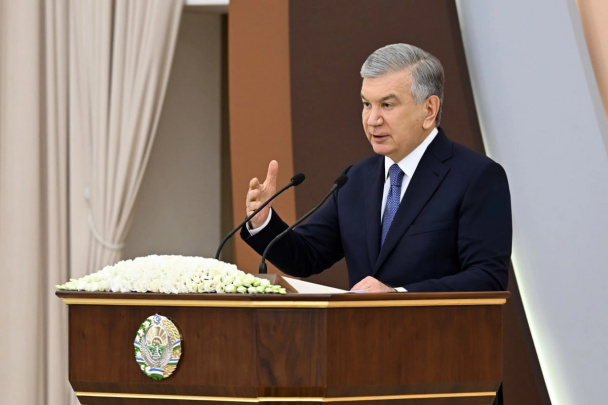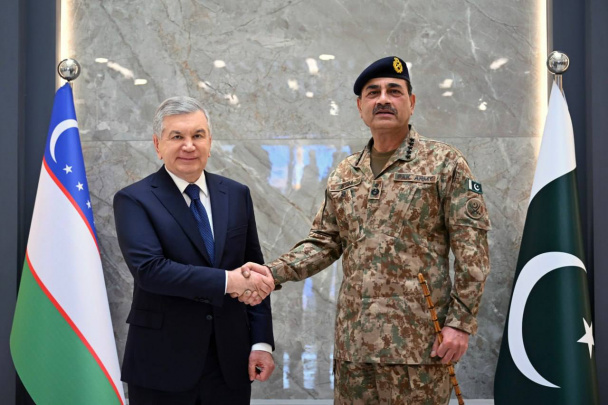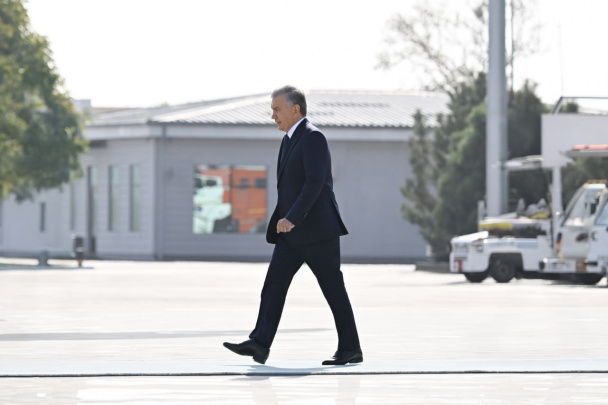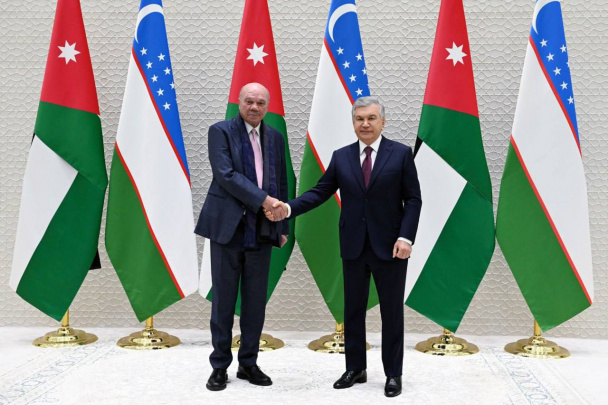Uzbekistan to create Assembly of Exporters

On February 6, a video-selector meeting was held under the chairmanship of the President of Uzbekistan on the most important tasks of increasing exports in industries and regions.
At the meeting, the President noted the need to diversify the structure of exports, to bring the share of non-primary products to at least 60%. To this end, it is entrusted to develop a national export strategy for the Republic of Uzbekistan for 2019-2025.
This strategy will have to cover the issue of transferring public services to exporters completely in electronic form, their financial support, entering the rating “Doing Business” among 50 countries with the highest foreign trade indicators. Based on foreign experience, the Assembly of Uzbekistan Exporters will be organized to coordinate the activities of exporters and provide them with comprehensive assistance.
Also, the issues of eliminating shortcomings in increasing exports and enhancing this work were discussed.
It was noted that last year the forecast for regional exports was not fulfilled, especially the indicators in Kashkadarya, Surkhandarya, Samarkand, Jizzakh, Namangan regions and Tashkent city are especially unsatisfactory.
It was criticized that the indicators of regional exports of fruits and vegetables were much lower than predicted, the corresponding target was not achieved in any of the regions.
Naturally, export depends on the conjuncture in the world market. Foreign experts predict that world prices for major raw materials will be low this year. In this regard, the export forecast for 2019 is set at a rate that is 30% more than last year.
The head of state pointed to the need to make an export forecast based on accurate calculations and suggested introducing a new system in this area.
So, first of all, activities of the Republican headquarters for export will be radically improved. Representatives of the headquarters will be assigned to the Republic of Karakalpakstan and regions.
Also, deputies and advisers to the Prime Minister will be personally responsible for fulfillment of the export forecast at the ministries, departments and business associations supervised by them.
The Republican Export Headquarters, the Deputy Prime Minister and the Ministry of Investment and Foreign Trade will develop ten-day export schedules by industry and regions, take measures to ensure unconditional execution of the concluded export contracts and signing additional agreements.
Secondly, permanently operating export headquarters will be organized in every region, district and city. Under their leadership, a holistic system will be formed, covering the processes of optimal placement of export-oriented crops, providing farms with qualitative seeds, harvesting without loss, sorting, packaging, storage and processing, including delivery of products to the foreign market. At the same time, these headquarters will help resolve the issues of internal and external logistics, certification, increase the export of small businesses and, if necessary, provide loans for replenishment of the working capital.
In accordance with these tasks, the regional, district and city headquarters will include representatives of territorial administrations and departments of republican departments in economics, agriculture, transport, energy, customs, standardization, quarantine and the Chamber of Commerce, as well as commercial banks.
It was noted at the meeting that headquarters in the regions are obliged to constantly work with exporters and promptly solve their problems. The results of the work done will be entered into the database and monitored online.
Thirdly, the ministers and heads of business associations will be responsible for implementation of the export forecast in the supervised industries.
For example, the association “Uztukimachiliksanoat” will be responsible for the entire cycle from the production of raw cotton in clusters to the export of all textile products produced in the republic.
The need to expand production of goods with high added value with the use of modern technologies in industries was noted.
Fourth, the Ministry of Investment and Foreign Trade, having effectively established a national export support system, will facilitate the entry of enterprises into the foreign market, take measures for their financial support and insure risks. It was noted that this system should work closely with export headquarters, the most important thing is that enterprises should feel the effect of its activities.
Fifth, all ministries and departments will be directly involved in ensuring exports.
In particular, the Ministries of Foreign Affairs, Investments and Foreign Trade, together with ambassadors, will identify demand and customers in foreign countries and regularly inform export headquarters.
Ambassadors assigned to regions will assist the administrations in finding buyers on the foreign market and participation of domestic enterprises in foreign exhibitions.
Sixth, great attention will be paid to improving transportation and logistics services.
As it is known, more than 20 international transport corridors and routes run through Uzbekistan and cooperation has been established with 30 countries in the field of international road transportation. However, logistics and road infrastructure, the capacity of border customs points do not fully meet the ever-increasing transit requirements.
In this regard, the responsible persons were given instructions for further development of logistics centers and roadside infrastructure, improvement of the technical condition and passage capacity of border customs points, active implementation of information technologies in the process of registration of vehicles and cargo.
The task was to optimize the tariff policy for transporting passengers and goods by air, to assist private operators in organizing the car fleet, to achieve discounts for transit countries from domestic exporters.
Seventh, standardization and certification of export goods does not meet the requirements, most of the standards do not correspond to the world ones, which creates serious difficulties for export. In this regard, the association “Uzstandart” was tasked to eliminate, together with the ministries and departments concerned, the existing shortcomings in the field of certification and standardization.
During the meeting, issues of efficient organization of exports of fruits and vegetables were also discussed. It is pointed out the need for optimal placement of crops in 67 areas specialized in fruit and vegetable farming, sending for export at least 25% of cultivated products.
It was recommended to create fruit and vegetable clusters in these areas and increase the number of modern processing enterprises.
“It should be clearly understood: it is impossible to dramatically increase export-oriented fruits and vegetables without their high-quality cultivation and supply abroad during the year,” Shavkat Mirziyoyev said.
Instructions are given for opening “green corridors” with Kazakhstan, Kyrgyzstan, Belarus and the Baltic countries to create convenience for exporters of fruits and vegetables, access to the markets of China, South Korea, Japan, India, the USA and Europe and receive quarantine services permits.
In addition, the meeting considered another urgent task – expansion of service exports, especially development of tourism.
It was emphasized that macroeconomic stability largely depends on the streamlining of imports. Attention was paid to increase production of import-substituting products, improve tariff and non-tariff regulations.
Reports of responsible managers were heard on issues discussed at the meeting.
Related News

13:27 / 14.02.2026
President Mirziyoyev orders 10–20 percent cost cuts at strategic state enterprises

19:58 / 05.02.2026
Tashkent and Islamabad discuss defense and security cooperation

08:46 / 05.02.2026
President Mirziyoyev to visit Pakistan

08:21 / 05.02.2026




